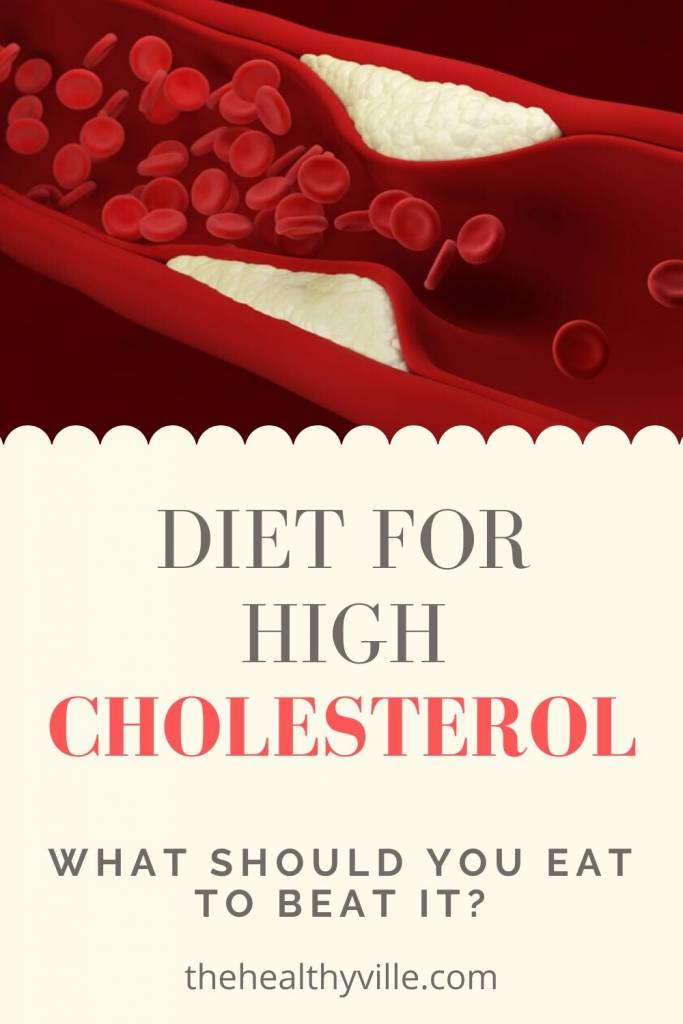A diet for high cholesterol, considering you strictly follow it, can really improve the quality of your life, and of course, of your overall health. Learn what to eat!
Learning to eat better is key to controlling high cholesterol. Do you know the keys to a good diet? Discover a series of recommendations.
Cholesterol is a substance present in all the cells of our body and is essential for many physiological processes. However, its excess is detrimental. Do you know how you should eat to control high cholesterol?
Hypercholesterolemia doubles the risk of having a heart attack or stroke. Given this, the strategy is always to reduce the consumption of foods rich in cholesterol. However, considering that 90% of the cholesterol in our blood does not come from food but from our own body, it is an unnecessary and sometimes counterproductive action.
In fact, the Spanish Society of Cardiology says that “80% of people with high cardiovascular risk hypercholesterolemia do not control their numbers.” So what diet for high cholesterol to consume to control it? The key is to act on endogenous synthesis.
A diet for high cholesterol
Yes, you read it right. It’s about doing just the opposite of what you thought. Our body regulates cholesterol through negative feedback mechanisms, that is, the more cholesterol it has the less it makes. However, endogenous production can only be slowed by an increase in cholesterol from the diet.
In fact, when it is low, a series of processes are activated to increase its production. However, you must be careful when choosing foods with cholesterol since some of them are harmful by other circumstances. In this sense, the egg can be a good alternative.
Eat foods rich in omega 3 and omega 9
Eating omega 3-rich foods can help control high cholesterol levels.
Omega 3 and Omega 9 inhibit cholesterol production. In addition, omega 3 also reduces the synthesis of those proteins that transport it to the arteries and helps to eliminate cholesterol plaques already formed. You can find Omega 3 in salmon, for instance, an Omega 9 through foods such as olive oil.
However, omega 3 oxidizes with heat and, therefore, it is very difficult to obtain it from our diet. The only way to guarantee an adequate contribution is from supplements. Remember to choose those that guarantee correct absorption and a low presence of contaminants.
Reduces consumption of high GI carbohydrates
Insulin is capable of activating the mechanisms necessary to increase cholesterol synthesis. Therefore, it is essential to avoid consuming those foods that increase their production. These are, fundamentally, the so-called high glycemic index carbohydrates.
Eat foods capable of increasing HDL protein
Eating foods capable of increasing HDL protein prevents cholesterol from building up in the arteries.
HDL is an acronym for “high-density protein.” Although it is not a type of cholesterol (there is only one cholesterol) but a transporter of it, it is the one we consider “good cholesterol”, which you can see in blood tests appear as “HDL cholesterol”.
Its function is essential to keep our cholesterol levels at bay, since it is responsible for transporting it to regions that can use or eliminate it. Therefore, increasing the consumption of foods capable of increasing HDL levels is a fundamental measure.
Take probiotics
Lactobacillus Reuteri has been shown to be effective in the treatment of hypercholesterolemia by increasing the elimination of bile salts through the intestine. When this occurs, the body increases the use of cholesterol for the formation of new salts and, therefore, reduces cholesterol levels in the blood.
To be effective, probiotics must contain at least 10 × 6 CFUs, be of human origin, and arrive and remain active in the intestine.
In short, far from avoiding dietary cholesterol, the key is to act on endogenous synthesis. To do this, we must reduce the consumption of the foods that activate it and increase that of those who manage to increase their transport to regions capable of using or eliminating it.
Don’t forget to SHARE the diet for high cholesterol with your friends and family on your social networks!

